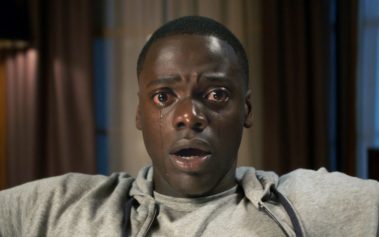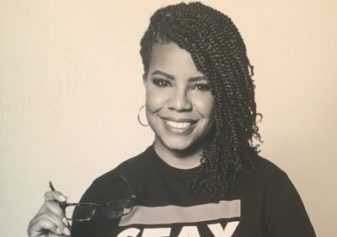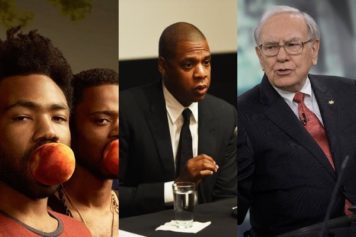Until the Oscar’s are handed out, the question of diversity in Hollywood will hover heavily like an unyielding specter. It will be on the lips of every interviewer, answered tactfully by every celebrity giving their response, and it will continue to be typed up on every entertainment blog.
It is an appropriate and important topic. For years, it has been crammed underground, not spoken of until it erupts, spewing lava in every direction — the lava of protest, boycotts and disturbances of the status quo aiming to melt away past indifferences and force change. However, after the Oscars are over, will questions about diversity and the inclusion of Black talent in Hollywood continue, or will it be forced back underground for another year? If the aim is sustained change, how is this achieved? Producer Marvin Peart believes the answer is African-American talent banding together to form their own studio.
Peart is an African-American executive producer in Hollywood. A co-founder of Marro Media Co., he worked with The Weinstein Company to produce the Mob Wives reality television series and was the first African-American to produce a major animated motion picture with 2013’s Escape From Planet Earth. In a guest column he wrote for Variety, Peart points out the oddness of a colorless Academy for another year but says that obtaining trophies isn’t enough.
“If luminaries of color say, ‘Inclusion in the Oscars is the be-all, end-all,’ that’s where people will set their sights,” Peart says. “When luminaries like Spike and Will say, ‘Raise capital — let’s build businesses, broaden our ambitions,’ these accomplishments will ultimately be more significant than an Oscar nom here or there.”
He then proffers a pertinent question, “Why is it, as African-Americans, we long and clamor for seats at a dinner party where the host must be forced to invite us, instead of pushing for ownership of the house, which includes the kitchen, dining room, table, silverware and, especially, the door and its hinges?”
Boycotting the Academy over their lack of recognition is a step in the right direction, but as Peart ponders, “Will we feel respected next year — when due to this outcry half a dozen minorities receive nominations? Won’t we question the legitimacy of our nominations — at the same minute we’re settling into the Oscar party, and our nominees are getting fitted for a tux or Valentino gown? And what difference will it actually make?”
One of the reasons the snubs hurt deeper this year than in the past is because there was a variety of Black talent behind the cameras doing quality work, and there were varied portrayals in front of the camera. In Concussion, Will Smith played a Black doctor conducting game-changing research that impacted the lives of many football players. Straight Outta Compton told the story of a rap group that revolutionized music, provoked societal conversations about race, and questioned police authority. Creed saw a young man follow his dream as a boxer in order to know his father better. It wasn’t the usual slave roles or domestic help roles that the Academy traditionally recognizes; it was different. Peart proposes that if a Black studio existed, this would be constant and consistent storytelling. Varied states of Blackness in film in different genres would be the norm.
Peart doesn’t discredit any African-Americans taking part in the protest, but he says, “If they truly decide to stay home, they should get on the phone with each other, wait for Chris Rock to exit the stage and his dressing room, then set a serious meeting. Use February 28 as the start date to address the urgent thing: How we can pool talent, resources and experiences — and have the first serious dialog about how to build the first African-American-owned studio with its own distribution platforms and output deals.”
Peart points out two recent start up studios, STX and Broad Green. It’s not an exclusive recipe locked away in a vault. The great thing about Black Hollywood right now is the sheer wealth of talent. Everyone knows about Ava DuVernay, Ryan Coogler, Michael B. Jordan and Will Packer, but there are many more who are just as capable. There’s also an older generation of Black actors and directors like Spike Lee and Denzel Washington more willing at this stage of their career to do something different. Along with the powerful Black business elite, the money is there to launch a studio. With the proliferation of Netflix and other streaming platforms, there are multiple distribution outlets. People may dismiss skin color, but they seldom ignore the color green.
Peart brings everything full circle: “Cast an actor of color in a movie as talent, and yes, you’ve given them a job. Teach them to own a fully integrated studio and distribution platform, you’ve given them something for many lifetimes — a business, decision-making power, real responsibility and autonomy.”
This should no longer be about #OscarsSoWhite; it should be the beginning of building an infrastructure of Black ownership in Hollywood.



